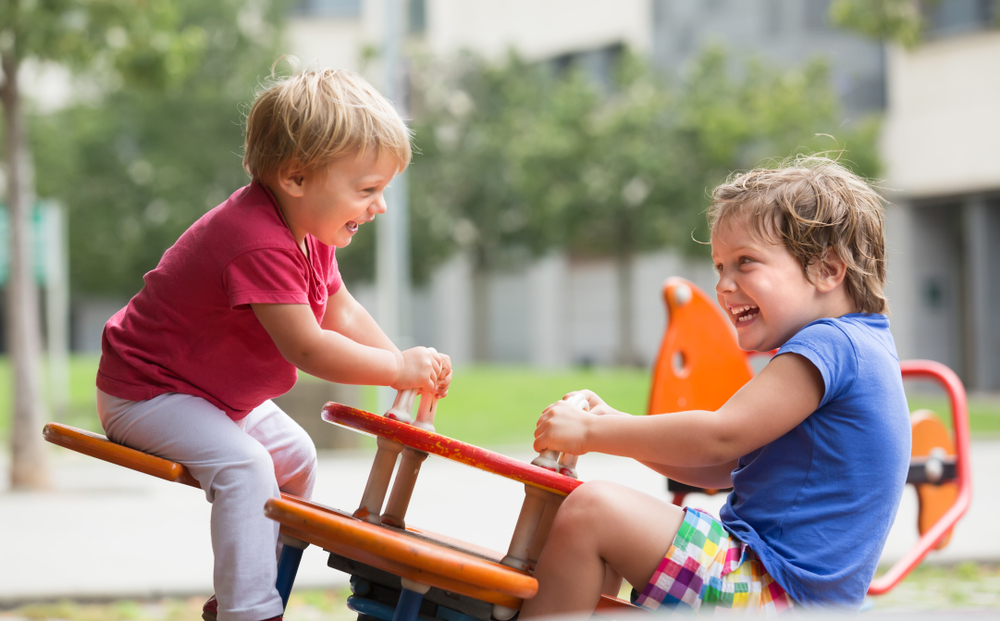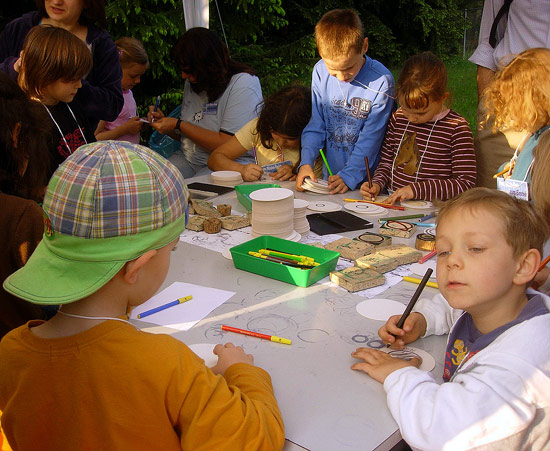Life Stages: Childhood
Typical Practices
German families practice a wide range of parenting styles, from socially conservative households to more liberal ones in which children experience more autonomy. Some German parents inculcate a strong family orientation in children, practice more protective parenting, and raise children in a traditional and authoritarian manner, while others permit children increased freedom to explore their interests and environment, as well as greater involvement in decision making. Wherever a family lies on the spectrum of parenting styles, corporal punishment is strictly prohibited, and the perception of children as parental property has become obsolete.
In Germany, parents primarily provide care for their own children. Grandparents may sometimes help if they live nearby.
Sports and games, important childhood activities, are introduced to children at a young age. Popular winter sports include skiing, snowboarding, skating and sledding. German kids also enjoy horseback riding, swimming, tennis, ice hockey, and volleyball.
School and Job Training
Many children follow compulsory full-time schooling between ages six and 15, pursuing part- or full-time education in a chosen field until the age of 18. Most children in Germany start preschool at four and formal education at six. On the first day of primary school, a German child traditionally receives a Schultüte, a big colorful cardboard cone filled with sweets, little toys, and school supplies. Children attend Grundschule or primary school, from first to fourth grade. Gymnasium, Realschule, or Hauptschule follow Grundschule. Gymnasium refers to a college preparatory school that children attend from grades five to 13. Graduates of Gymnasium almost always go to university. Children who attend Realschule study through grade 10 and receive a general education as well as some business training. Children who attend Hauptschule receive both a basic general education and some vocational training to facilitate their transition from school to work. Hauptschule usually lasts five or six years. Students who graduate from either Realschule or Hauptschule must continue their education by attending a job-training program and learning a specific profession. Nearly every occupation, be it mechanic, waiter, or accountant, has a specially designed training program.
Germany conforms to the European Union laws on child labor, although the prohibition does not extend to young people who work to fulfill a legal requirement, for the purpose of occupational therapy, or in experience programs within the purview of school curriculum work. Germany conforms to the E.U. laws on child labor, although the prohibition does not extend to young people who work to fulfill a legal requirement, for occupational therapy, or for experience programs within the purview of school curriculum work.
Copyright © 1993—2025 World Trade Press. All rights reserved.

 Germany
Germany 
